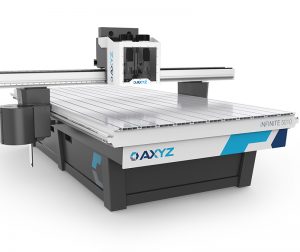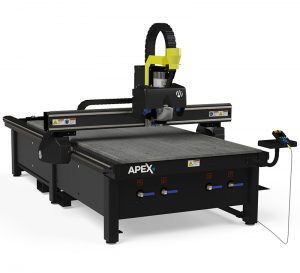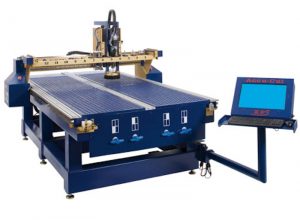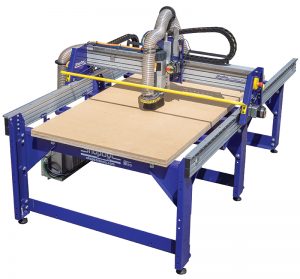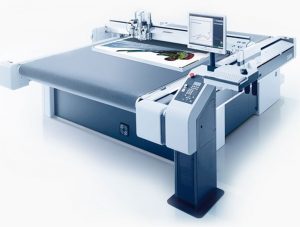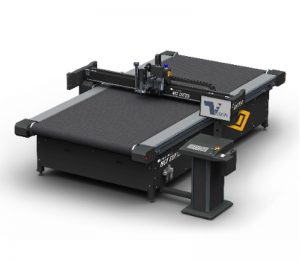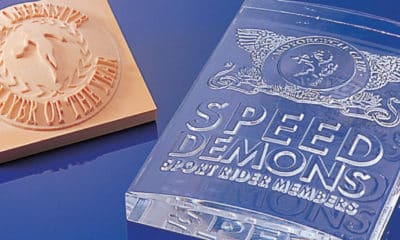CNC ROUTERS AND finishing machines are closely related. Both can move tools on an X, Y and Z axis. All of them carry a specialized tool whose primary function is to cut material. But, if CNC routers and finishing machines are so closely linked, why do we classify them as different products?
Up until just recently, distinct differences separated CNC routers and finishing machines. For example, a finisher typically did not handle thick media. While a 2-in. board is no big deal for a CNC router, it was overkill for a finisher. Why? The types of tools used in the machines. Finishers usually carried knives and blades designed to cut thin materials. CNC machines had multi-horsepower routers that could cut and rout hard materials, such as various woods and soft metals. However, CNC machines were not designed to work with intricate, delicate designs and materials. Just try cutting vinyl with a standard router and see what happens.
Another differentiator was the need for camera-based registration. This was unneeded for a CNC machine, as the media was not finished prior to cutting. Finishers really hit their stride when signmakers began buying UV printers and printing directly onto boards. Intricate designs could be cut, but registration had to be extremely precise. Using a series of registration marks scanned by an onboard camera made this a simple process and revolutionized finishing.
Price is also a major distinction between the machines. CNC routers have had a wide-ranging price point that was determined by size and capabilities. Entry-level routers can be found for under $10K and increase in price to around $120K. Finishing machines have always been a large-ticket item. Base models are priced around $100K and go up with the addition of automated media handling.
Today, the stars have aligned, and new machines can perform both functions. Router companies have added tool holders that handle the precision knives and blades used on traditional finishing machines.
Moreover, camera registration systems are being added, too. So, a machine that can finish delicate materials and rout traditional materials has been created. The finishing-machine companies have also seized this opportunity; they’ve included full-blown routers as tool options to some of their machines. These companies have also increased the media thickness that can be handled to accommodate the bulkier materials cut by CNC routers.
Advertisement
Now you have the best of both worlds. Bear in mind that CNC routers and finishing machines are still expensive products that will easily set you back $100K or more. But you could save much more by not having to purchase two different machines. Shops closely monitoring their budget should acquire a machine that will handle the bulk of their needs. For the typical signshop, that would mean a CNC router. The good news is that many companies offer products within the reach of anyone’s pocketbook.
PHOTO GALLERY (6 IMAGES)
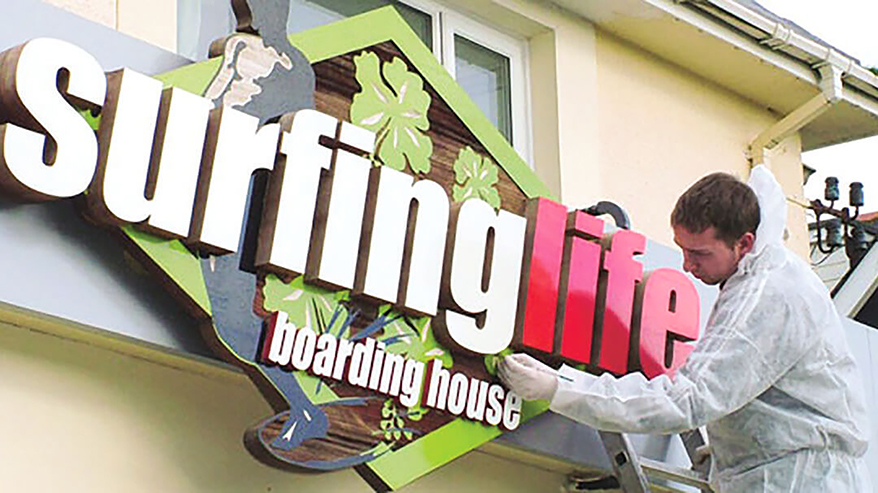 CNC routers and cutters now have crossover functions, meaning budget-conscious signshop owners can save by buying one or the other.
CNC routers and cutters now have crossover functions, meaning budget-conscious signshop owners can save by buying one or the other.

 Tip Sheet1 week ago
Tip Sheet1 week ago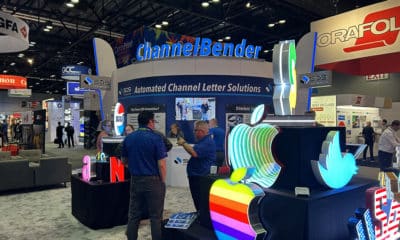
 Photo Gallery2 days ago
Photo Gallery2 days ago
 Ask Signs of the Times4 days ago
Ask Signs of the Times4 days ago
 Real Deal1 week ago
Real Deal1 week ago
 Benchmarks6 days ago
Benchmarks6 days ago
 Women in Signs1 week ago
Women in Signs1 week ago
 Photo Gallery1 week ago
Photo Gallery1 week ago
 Women in Signs1 week ago
Women in Signs1 week ago
